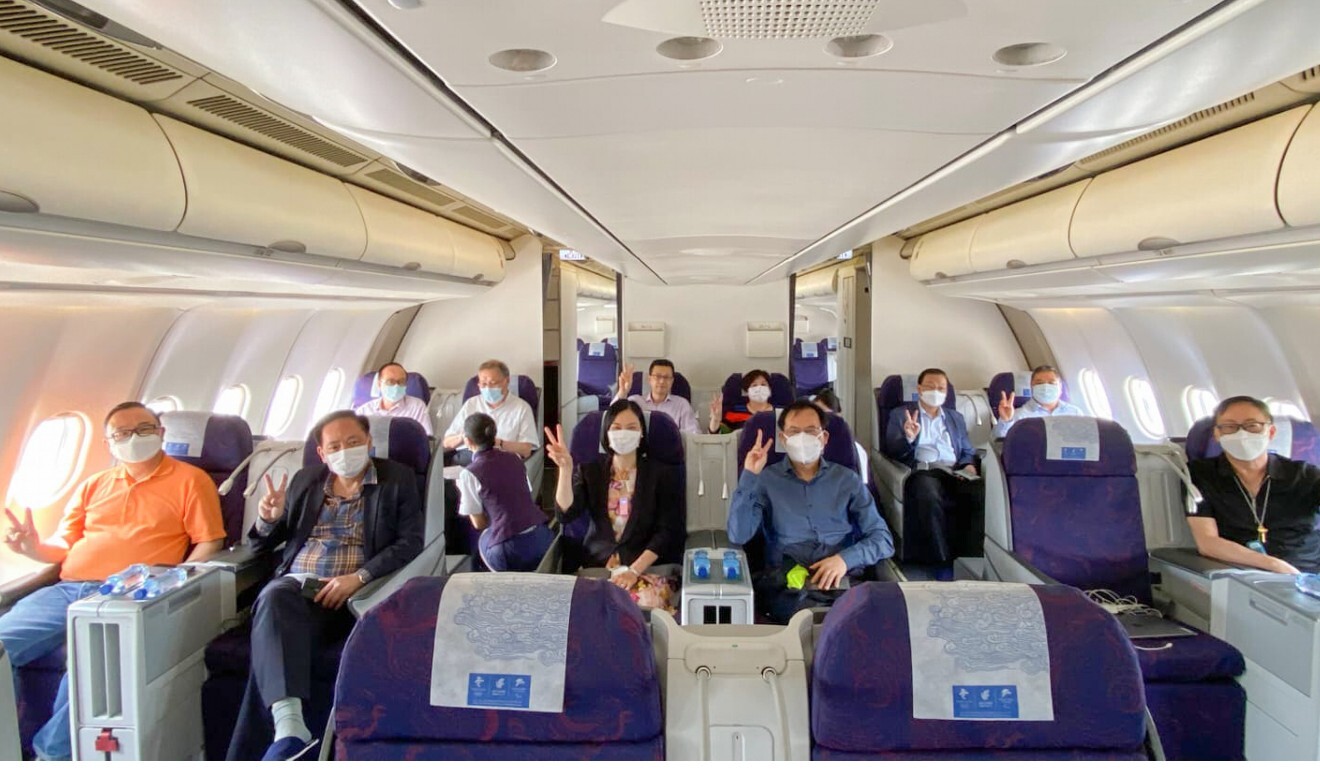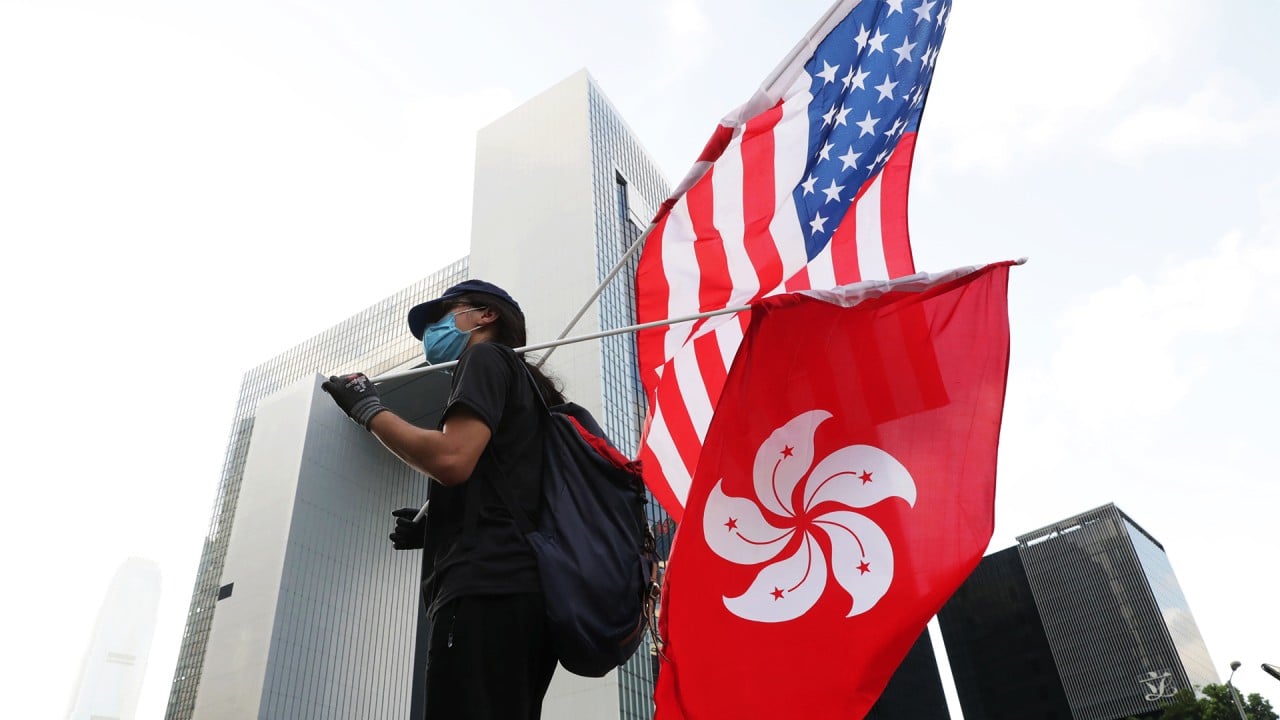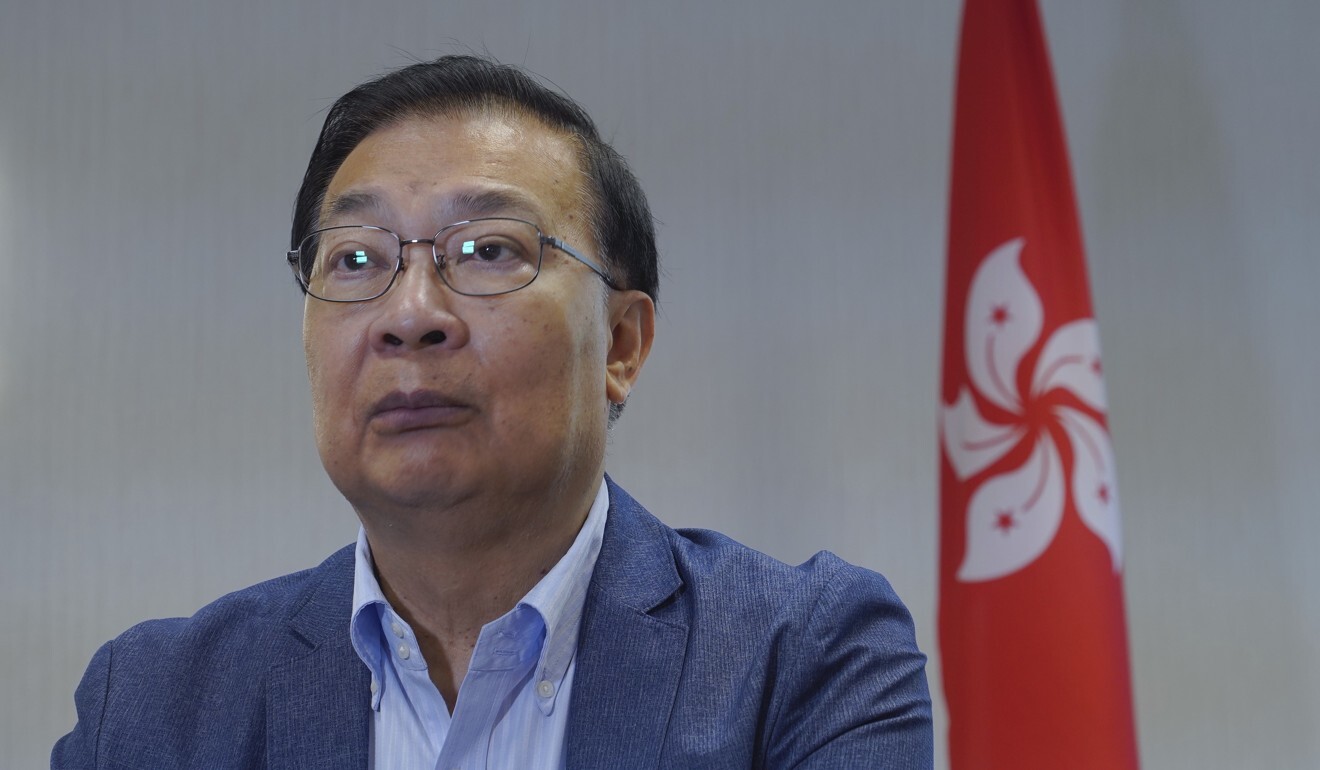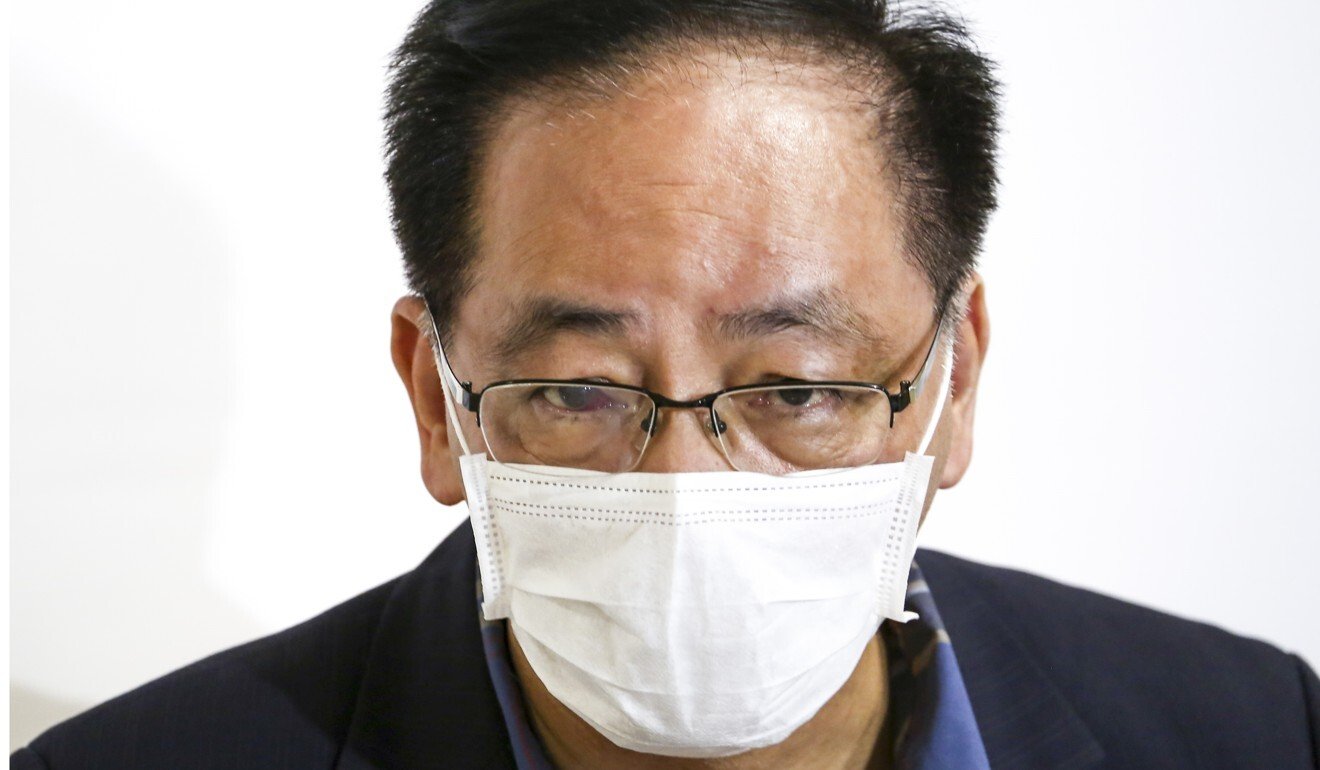
Hong Kong national security law: China’s top legislative body to hear calls for retroactivity, stiffer penalties for deterrent effect
- Tam Yiu-chung says people are concerned the law will have no deterrent effect if it is not retroactive and penalties aren’t heavier
- Beijing slams US for announcing sanctions on Chinese officials over impending legislation
The controversial legislation, aiming to prevent, stop and punish acts of secession, subversion, terrorism and collusion with foreign forces to endanger national security, is expected to be passed on Tuesday, the last day of the meeting. It could take effect immediately after that.

Why we’ll only see the full draft of Hong Kong’s national security law after it kicks in
Tam, the sole Hong Kong delegate who has the right to vote in the standing committee meeting, highlighted two key suggestions he had collected from public feedback to be conveyed to national lawmakers.
Ten local delegates to the National People’s Congress, the country’s top legislature, will also attend the meeting in Beijing to express their views, but they cannot vote on the law.
“Some people are concerned that there will be no deterrent effect if [the law] is not retroactive. Some others think that penalties for offences concerning national security should be heavier to reflect on severity,” Tam said.

01:08
US Senate passes bill that could punish China for Hong Kong national security law
The full draft of the sweeping law has not been made public. An explanation covering some of its key issues released by Beijing last Saturday did not lay out penalties or specify whether it would be retroactive.
Tam had earlier revealed, after reading the full draft of the legislation, that the penalty was set at three to 10 years’ imprisonment, compared with a life sentence applicable in mainland China. He called it a “lenient move” by the central government for Hongkongers.
The suggestions Tam took with him to Beijing contradicted assurances by mainland officials and Secretary for Justice Teresa Cheng Yeuk-wah, who had earlier said the law would not be retroactive in nature.

When asked if he would also reflect the results of a recent survey by the Hong Kong Public Opinion Research Institute, which showed that 57 per cent of the public opposed the law, Tam said: “It’s meaningless to include dissenting voices. They have been opposing such legislation for more than 20 years, since Article 23. If we accommodate their views, how can we deal with national security? We have to make a decision.”
Article 23 of the Basic Law requires Hong Kong to enact its own national security legislation. Its failure to do so since the 1997 handover from British to Chinese sovereignty has prompted Beijing to impose the legislation by different means, citing the need to end violent anti-government protests.

Ip Kwok-him, one of the local delegates who will attend the meeting, told a radio programme on Saturday that Beijing might release the full draft of the law before passing it on Tuesday.
Hong Kong’s legal scholars, media executives and opposition lawmakers have been piling pressure on Beijing to release the draft as soon as possible for scrutiny before its passage.
What is Hong Kong’s national security law?
As part of international pressure, US Secretary of State Mike Pompeo on Friday announced Washington’s visa restrictions on Chinese officials, without identifying anyone by name, following the unanimous passage of the Hong Kong Autonomy Act by the Senate which calls for mandatory sanctions against individuals perceived to be undermining the city’s autonomy.
In a harshly worded statement on Saturday, the office of China’s foreign ministry commissioner in Hong Kong repeatedly rebuked the US and defended its national security law, insisting it was necessary to ensure stability.

“The US must immediately stop its interference in Hong Kong affairs and China’s domestic affairs, or else it will be met with a powerful counter-attack from the Chinese side,” the statement warned.
Ip interpreted the first wave of sanctions by the US as “intimidation”.
“Thieves have been going in and out of our home freely … It’s so ridiculous that we are now accused of installing a door to prevent them from coming in,” he said.
Secretary for Constitutional and Mainland Affairs Erick Tsang Kwok-wai told state broadcaster CCTV on Saturday that he had been “longing for” such a law for the security of both Hong Kong and the mainland.
“The legislation must have a huge deterrent effect on anti-China troublemakers in Hong Kong. I believe society will become more stable,” he said.
But independent experts at the United Nations Human Rights Council released a statement on Friday, expressing concern that the lack of “any meaningful consultation” in the law’s drafting process could impose severe restrictions on Hongkongers’ civil and political rights.

“The national security law would introduce poorly defined crimes that would easily be subject to abuse and repression, including at the hands of China’s national security organs, which for the first time would establish ‘agencies’ in Hong Kong ‘when needed’,” the experts said.
Amnesty International called on Beijing to abandon the law unless it could “provide watertight guarantees that the legislation conforms with human rights in all aspects”.
Joshua Rosenzweig, head of the group’s China team, said Beijing’s assertion that the law would only affect a tiny minority was “hardly reassuring” as it would include repressive measures that could be used to target anyone.
“The Hong Kong authorities are already weaponising the local law against too many of its citizens – a secretive national security agency simply creates more tools to crack down on human rights and risks turning the city into a police state,” he said.


